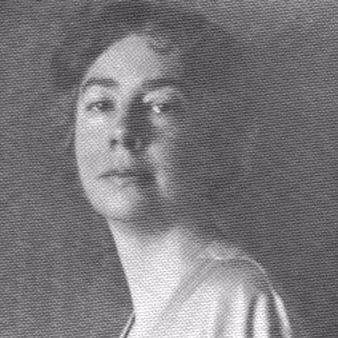I am not yours, not lost in you,
Not lost, although I long to be
Lost as a candle lit at noon,
Lost as a snowflake in the sea.
You love me, and I find you still
A spirit beautiful and bright,
Yet I am I, who long to be
Lost as a light is lost in light.
Oh plunge me deep in love—put out
My senses, leave me deaf and blind,
Swept by the tempest of your love,
A taper in a rushing wind.
Published:
1917
Length:
Shorty
Literary Movements:
Modernism
Anthology Years:
2020
Themes:
Love & Relationships
Poetic Form
Literary Devices:
Alliteration
the repetition of the same letter or sound at the beginning of words appearing in succession
Ballad
a narrative poem or song that tells a story, often about a hero, adventure, or romance; ballads usually follow a form of rhymed quatrains alternating four-stress and three-stress lines.
Imperative
an instruction or a command
Repetition
a recurrence of the same word or phrase two or more times
Simile
a comparison between two unlike things using the words “like” or “as”

